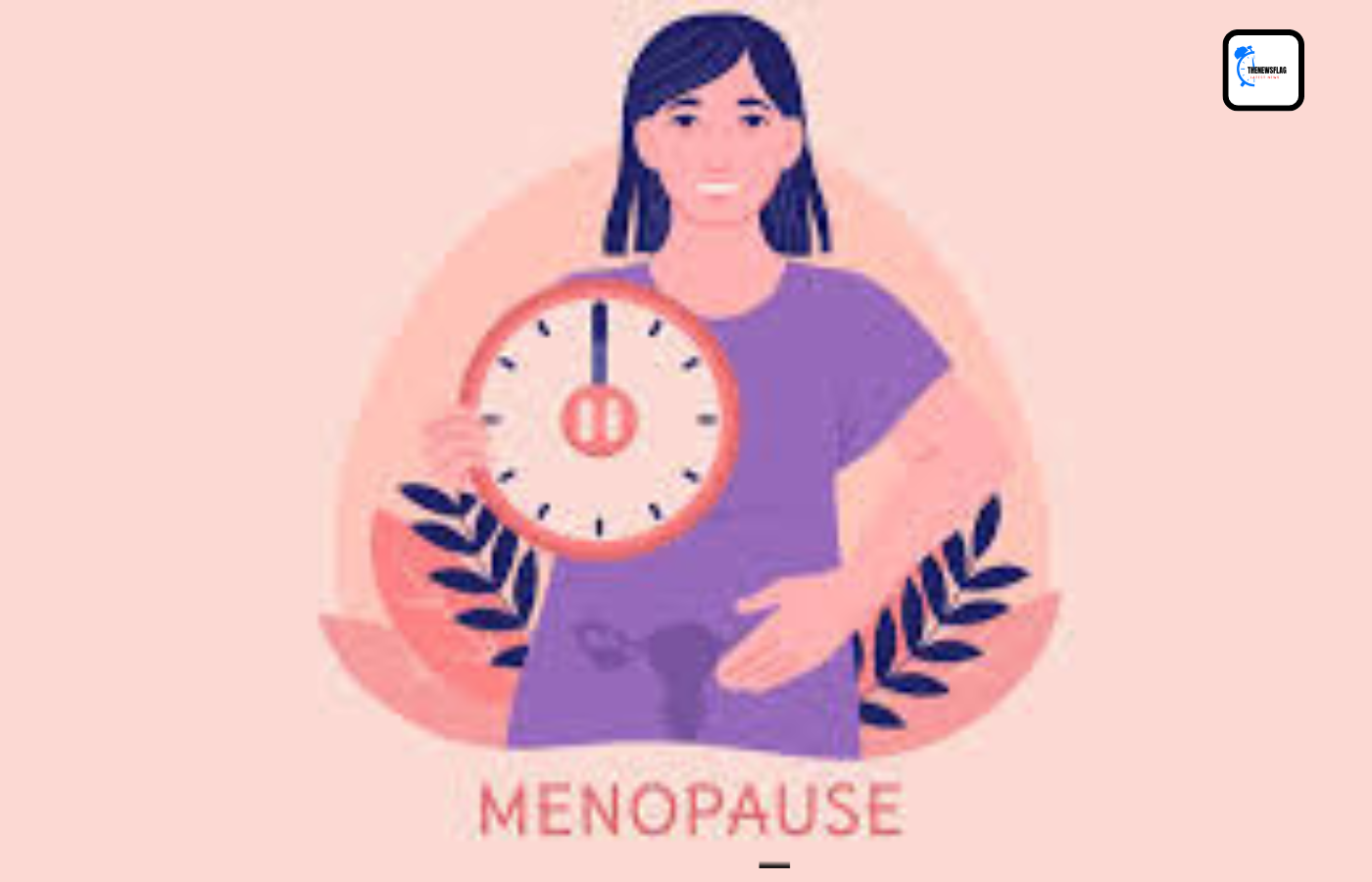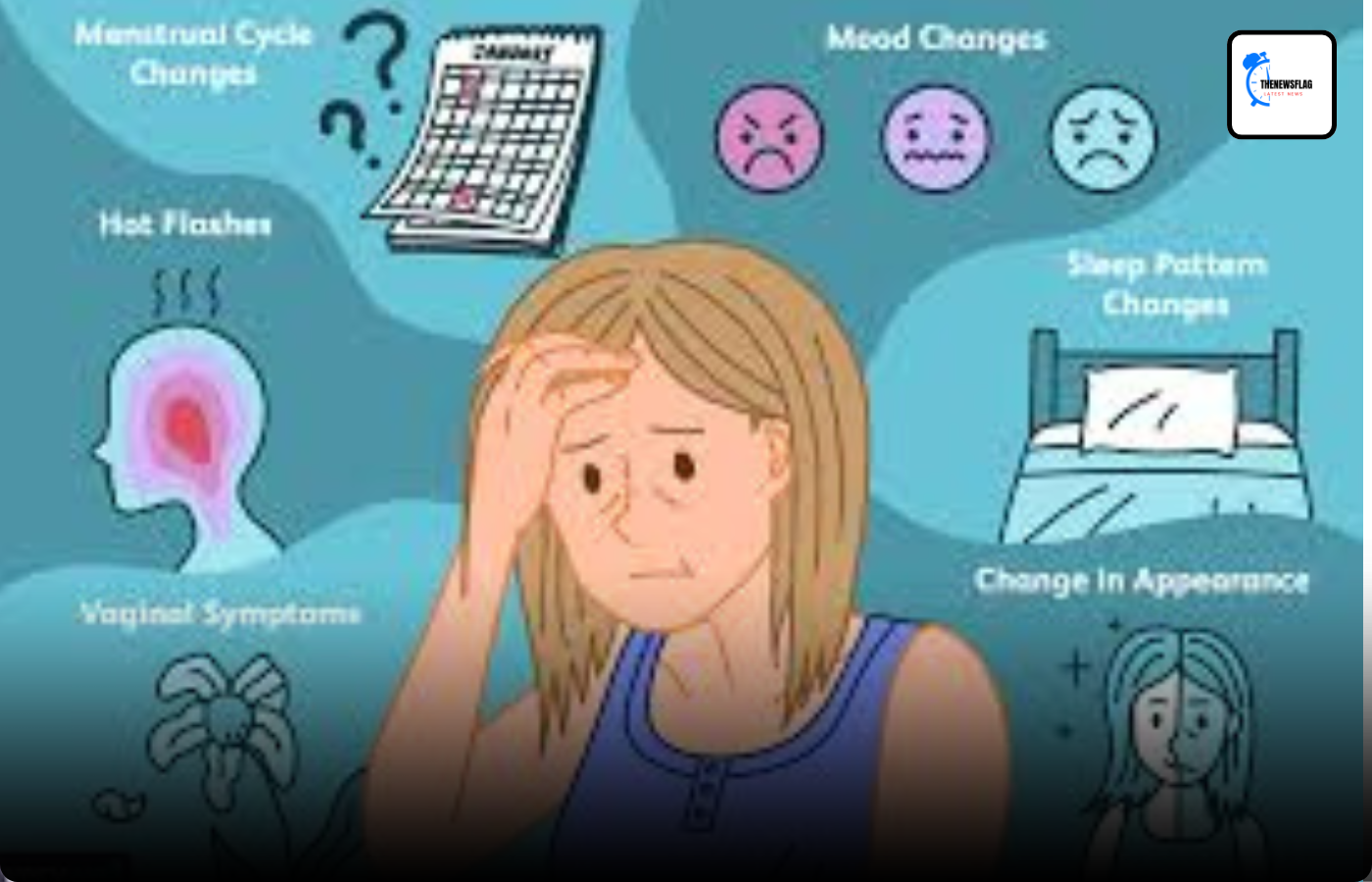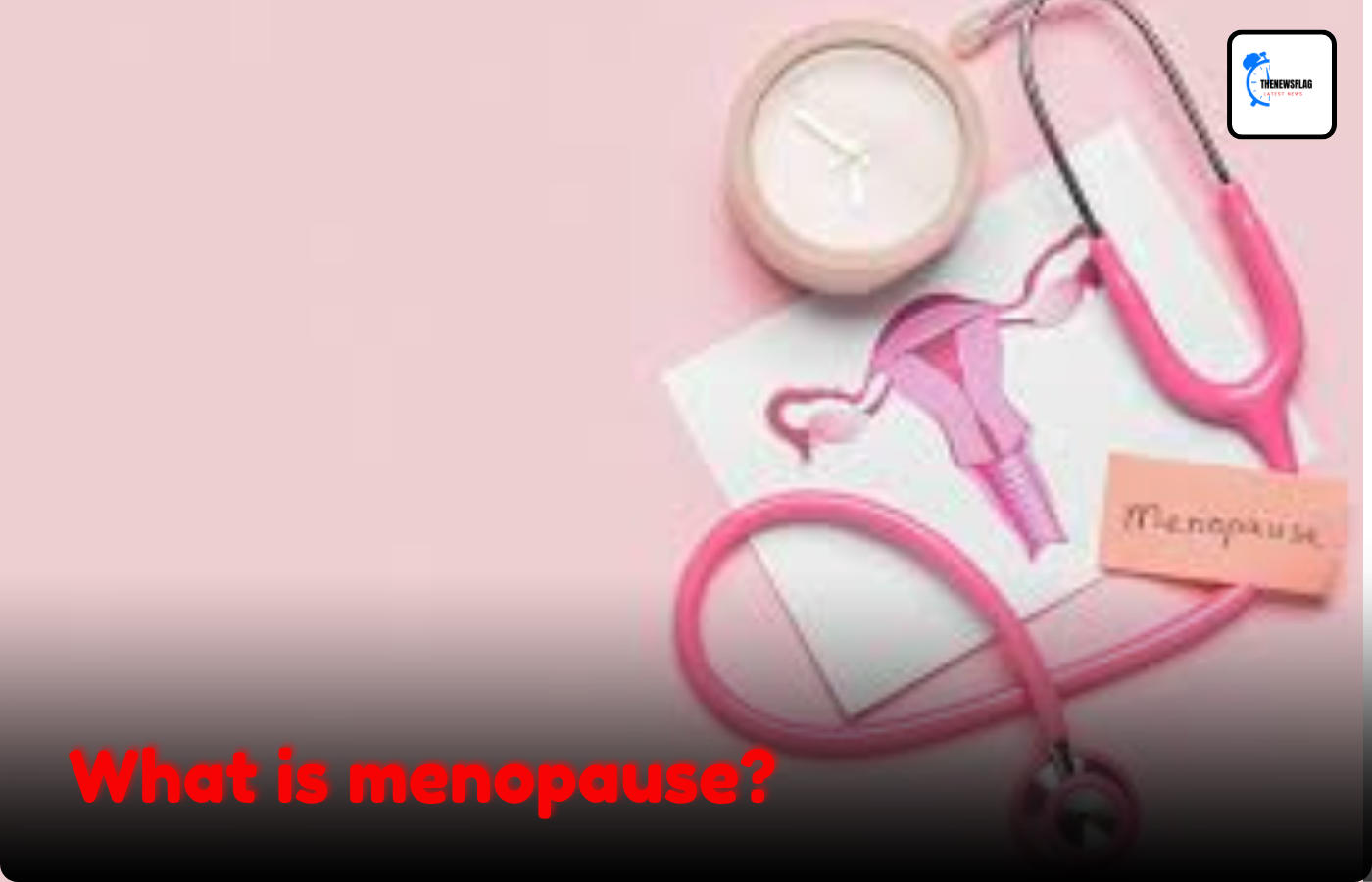Menopause: Menopause is a process in the women’s body wherein menstruation is a monthly cycle in a woman’s body where endometrium shedding occurs; also known as the Period stops. It marks the end of fertility for a woman and marks the lack of menstruation for about one year.
I always thought “Well I’m always cold so they won’t be so bad.”
Then I was wandering around in my apartment in my underwear with flop sweats and standing in front of a fan with a frozen dish towel around my neck.
Going along with that are the night sweats.
I swear I have to launder my sheets twice as often now because they are soaked by morning.
My period is a big pain in the ass, even though I’m on birth control.
So it used to start Monday evening and finish by Saturday afternoon. It’s literally like clockwork. Now it could start Mon-Wed and could end Sat-Tues. I’ve had more accidents in the last 6 months than I had the entire time I’ve been on the pill (over 3 decades).
Now, these are symptoms of peri-menopause, the joyous time before you actually stop menstruating and have no fear of pregnancy. And from what I understand, this hell will last 5–10 years.
Oh yay.
If you are having some of these symptoms, welcome to hell. But also realize you can still get knocked up, so keep using birth control.

What does it feel like to go through menopause?
I was fairly irregular–never knew when I would get my period. Then suddenly, in my early 40’s, I became regular. I just thought it was weird. I did not associate it with menopause.
Then in my mid-40, I noticed that whenever I took a long walk, worked in the garden, or was just outside for a while, I would start to sweat when I came inside.
This was definitely peculiar because I don’t usually sweat. Then a friend was talking about her hot flashes, and I suddenly realized that I was having them. They were annoying, but that was all.
OK, I thought, I can handle this. And then the real hot flashes started. I would suddenly get HOT, so hot that sometimes I opened the freezer and stood in front of it for a while. I often drove to work in the winter, even during snowstorms, with all four windows open, and still sweated. The hot flashes hit at any and all times. I was unable to determine any pattern or cause. They just happened.
SEE ALSO: Is Retinopathy a disease?
Menopause: I had to stop wearing wool, I had to dress in layers so I could take some layers off during a hot flash, and I had to bring a towel to work with me so I could wash in the women’s room when my hot flash soaked me. I woke up 5, 6, 7 times a night, soaked in sweat and then freezing cold when the hot flash stopped and my wet nightgown started to evaporate.
I used to sleep with several nightgowns under my pillow so that I could change my nightgown frequently.
I was cranky a lot. I think it was because I wasn’t sleeping well. My doctor suggested an over-the-counter sleeping pill (a variation of Benadryl) so that I could sleep. She said that I could take it every night. That thought was daunting since I don’t like taking medicine. So I took it a few times a week, and it really made a difference.
I slept much better on the nights I took the pill, and my grouchiness diminished.
My doctor told me that the duration of my hot flashes was unusual; they lasted in earnest for 14 years. Much, much too long. However, by now they have diminished to just occasional ones.
And by the way, my mother never had a hot flash. She said that she passed through menopause without even noticing it.
What is menopause, and how early is too early?
Menopause is the term given to when a woman permanently stops having her monthly menstrual cycle and no longer gets her period. It is preceded by what is termed ‘perimenopause’, which is the process of the ovaries winding down and ultimately ceasing the monthly process of ovulation, which is what precipitates a period (unless the ovum which has been released is fertilized resulting in pregnancy).
The process of perimenopause can last several years. During this time, ovulation can be quite irregular, as a result of which many women find the timing of their period may be quite variable, and it is common for a number of women to find that they experience very heavy menstrual loss. Heavy bleeding occurs when there is a failure to ovulate or a delay in ovulation.
The hormones that dominate the first half of a woman’s menstrual cycle (ie, prior to ovulation) cause the uterine lining (endometrium) to grow, ready to receive a fertilized egg and sustain a pregnancy.
Once ovulation occurs, the empty follicle from which the egg was released secretes hormones that cause the endometrium to stop growing and then start to break down unless a pregnancy has occurred, and it is then shed as a period. If ovulation is delayed or does not occur, the lining can continue to grow for an extended length of time, resulting in a very heavy period when it sheds.

Menopause: Women who do get very heavy menstrual loss during perimenopause now have a number of options available to them that are less drastic than hysterectomy (which going back a couple of decades was the most common form of treatment for intractably heavy periods in the perimenopause).
The Mirena hormone-releasing IUD not only provides contraceptive cover but greatly reduces or even eliminates menstrual bleeding. There is a procedure called endometrial ablation where the endometrium is cauterized under anesthetic, following which it either does not grow at all or the cyclical growth (and the subsequent period) are significantly reduced. There are also various medications available that can assist.
SEE ALSO: What is vitamin C deficiency disease?
Perimenopause and the first couple of years after menopause are often also associated with episodes of feeling hot and/or sweaty, generally referred to as a hot flush or hot flash. These typically settle down over time.
Most women experience vaginal dryness after menopause because the vaginal tissue is no longer receiving the same levels of estrogen hormone.
If this is problematic, a simple lubricant gel can be used for sexual activity, or a doctor can prescribe an estrogen cream to use topically. Mood swings can occur during perimenopause due to erratic hormone levels. The process can be a bit like puberty in reverse!
The timing of menopause is primarily genetically determined. A baby girl is born with her full genetic complement of eggs in her ovaries, in a very immature form.
Once a girl begins to menstruate, each month several eggs begin to ripen, and the largest, or dominant follicle releases its egg in the process of ovulation (sometimes more than one egg ripens at the same time and the woman may release 2 or more eggs in the same cycle.
If these are all fertilised a non-identical multiple gestation will result). The eggs which are ripened but not released atrophy and die in the second half of the menstrual cycle. When a woman’s remaining egg supply starts to run out, this triggers perimenopause and then menopause.
As menopause is defined as when the periods have ceased altogether, it can only really be diagnosed in retrospect, although there are hormone blood tests that can also be done to confirm whether a woman is menopausal.
The normal age range for menopause is early to mid 40s at the lower end, to mid to late 50s at the upper end. Menopause before the age of 40 is generally considered premature menopause.
Menopause will also be triggered if a woman has both ovaries surgically removed (called surgical menopause), and can occur as a result of chemotherapy, or radiotherapy to the abdominal area, although some women stop cycling during chemo or radiotherapy and recommence again sometime later when the ovaries have had a chance to recover.
The cessation of the monthly cycle does tend to cause some loss of muscle bulk and can also cause bone thinning which can lead to osteoporosis.
Postmenopausal women should have their bone density checked every couple of years and should take calcium supplementation unless their diet is very calcium-rich, and engage in regular weight-bearing exercise (which helps preserve bone density).
Because of these side effects of menopause, women who experience premature menopause may be advised to take hormone replacement therapy (HRT) until they reach the normal age range for menopause.
Some women do not tolerate the symptoms of menopause well and may benefit from herbal medications such as evening primrose oil, or even HRT.
There is a trade-off with HRT, as while it keeps post-menopausal women looking and feeling younger, it increases the risk of breast and ovarian cancer, and heart disease, so a careful discussion with a woman’s treating practitioner, having regard to her individual risk factors, is strongly recommended before embarking on HRT.
what is its age?
Age of menopause. The age of menopause in women in India is generally between 45-50. However, premature menopause can occur if the ovaries and uterus have to be removed prematurely due to surgery or cancer.
Perimenopause i.e. periods before menopause begin to become irregular and periods stop completely in menopause. The postmenopausal stage comes only after menopause. Perimenopause usually begins in the mid-40s.

Side effects on women’s health:
During menopause, estrogen starts declining giving various symptoms to the body and certain troubles too like hot flashes, mood swings, night sweats, anxiety, laziness, and tiredness. It hits physically too like joint pain, acne, hairfall etc.
At perimenopause, our body gives various symptoms and as a woman, we should take it seriously because if deal with that time properly, can lead to a smooth transition during menopause like eating healthily, staying hydrated, reducing caffeine and packaged foods, adding salads and fruits in your diet. Stay fit doing exercise, yoga, and meditation will help you a lot.
Even then, if you are feeling certain symptoms can’t be overcome, then you can consult some doctor or you can go for menopause supplements. These days, many supplements are there. One of my maternal aunts took from Menoveda.
They have Ayurvedic menopause supplements but what I love the most about them is that one doesn’t fit for all.
They have a team of doctors and a quiz too through which they identify the symptoms properly and then only suggest supplements. Supplements are also Ayurvedic and nonhabit forming. My Maasi passed this phase beautifully and now she is living her life fullest
How to delay menopause: have a stress-free life/job. Eat no processed foods or anything labeled “natural.” Allow a modicum of sun exposure in your eyes and on your skin.
Don’t use plastics of any kind to store your wet foods, only silicon or glass. Get exercise every day. Don’t overeat. You know what you have to do. It’s boring, but that’s “life.”
How to prevent aging due to menopause? Aging is not due to menopause. Menopause is due to aging, damage, and apoptosis (programmed cellular death). The only way to stop aging is to die….not my goal in life.
Menopause: What do you mean by aging? Wrinkles? Don’t get sunburnt when you are a foolish youngster. All that UV light damages the skin. Dementia? Get more exercise, especially physical. It’s already been linked to activity. Arthritis? Watch your weight. I’m convinced that because of the removal of bones in beef,
the US population is losing its intake of glucose-aminoglycans (GAGs, for short). Say it slowly, GAGs. As you get older, your ability to hold onto these GAGs is slowly lost, just worn out like a pancreas that needs insulin and can’t make it anymore.
GAGs are gelatin-like. You need something to act like a washer between your bones, and cartilage. Being overweight grinds it down. Dietary deficiency of GAGs makes it easy to wear out.
People are taking them in nasty drinks or pills, but being a nutritional supplement, it doesn’t last but a day or so—it’s missing something.
The really old cooks know what I’m talking about if I say that if you cook today’s typical beef roast, there is almost NO gelatin anymore. Fifty years ago, you used to be able to cook a nice roast and end up with several cups of luscious, unctuous gelatin to make oodles of gravy or magnificent aspic. Now, you are lucky if you get half a cup.
The food companies are there to make money, and they make it off everything. They take the peels off of “baby carrots” and put it in dog food. They take the whey out of milk and sell it as “protein supplements.”
They take the vegetable refuse, make a powder, mix it with potatoes, and call them “veggie chips.”
None of these things have the complete nutritional complement that they started with that you should be able to eat or drink and not pay extra for. Some of it is just smart thinking and recycling. In case you don’t recognize what this part of my rant is about, it’s about good eating. Don’t believe everything you see.
My greatest pet peeve is Quaker labeling their oatmeal as “heart healthy,” and that it has fiber. There is no proof, especially when you’ve got sugar added, chemicals added, and are gullible about eating it.





